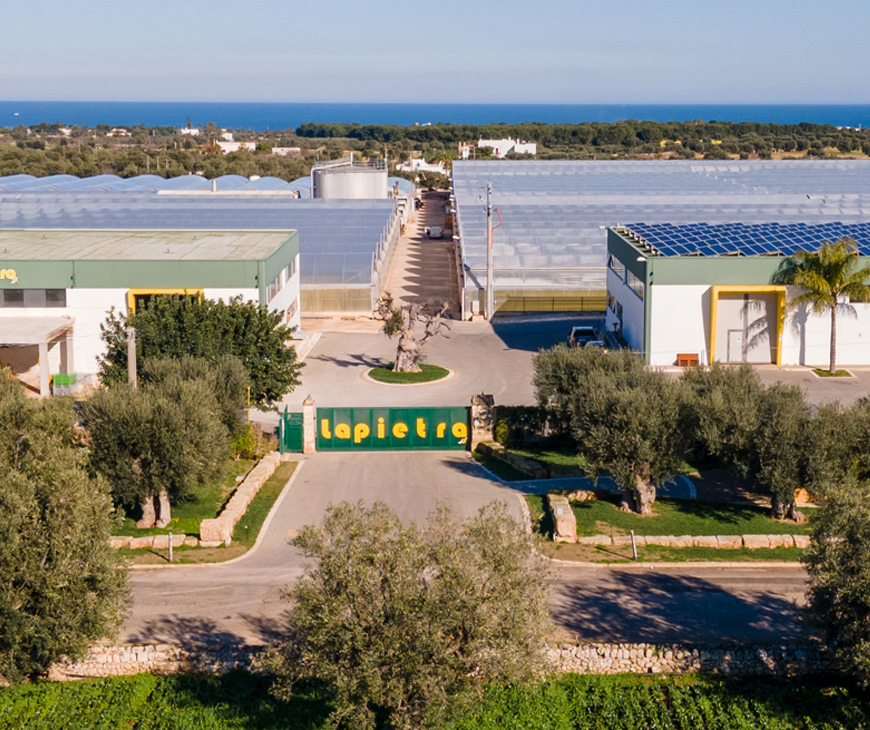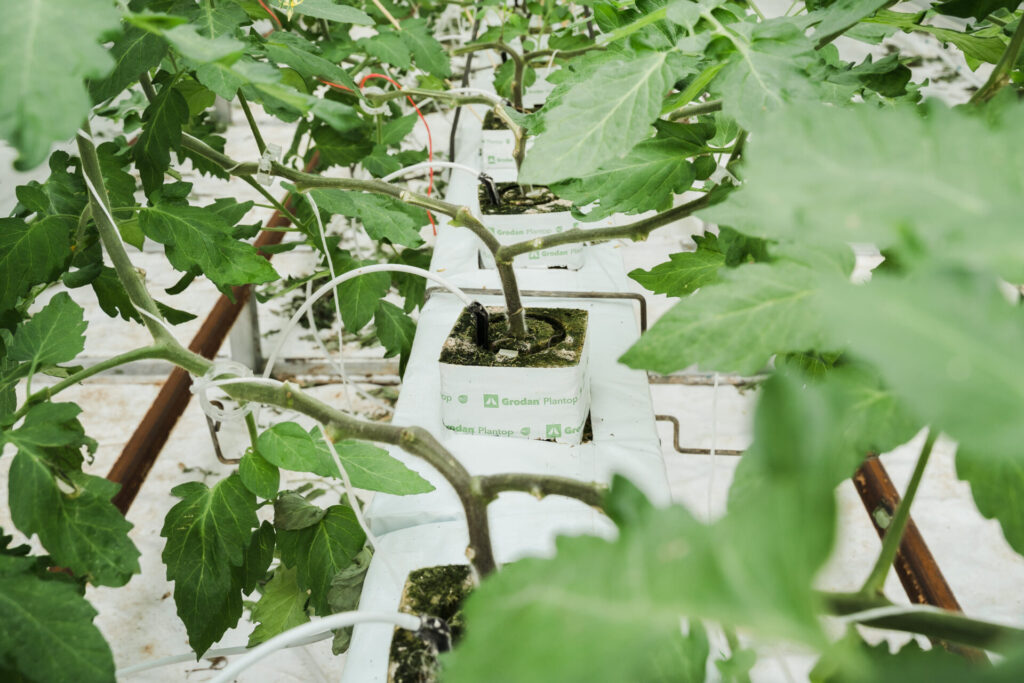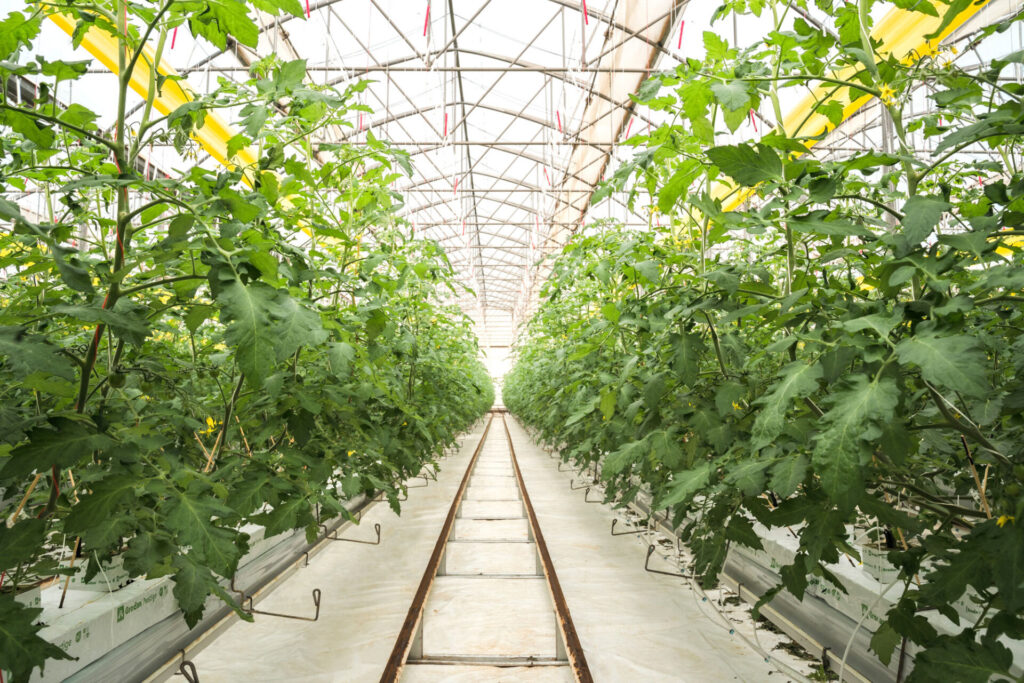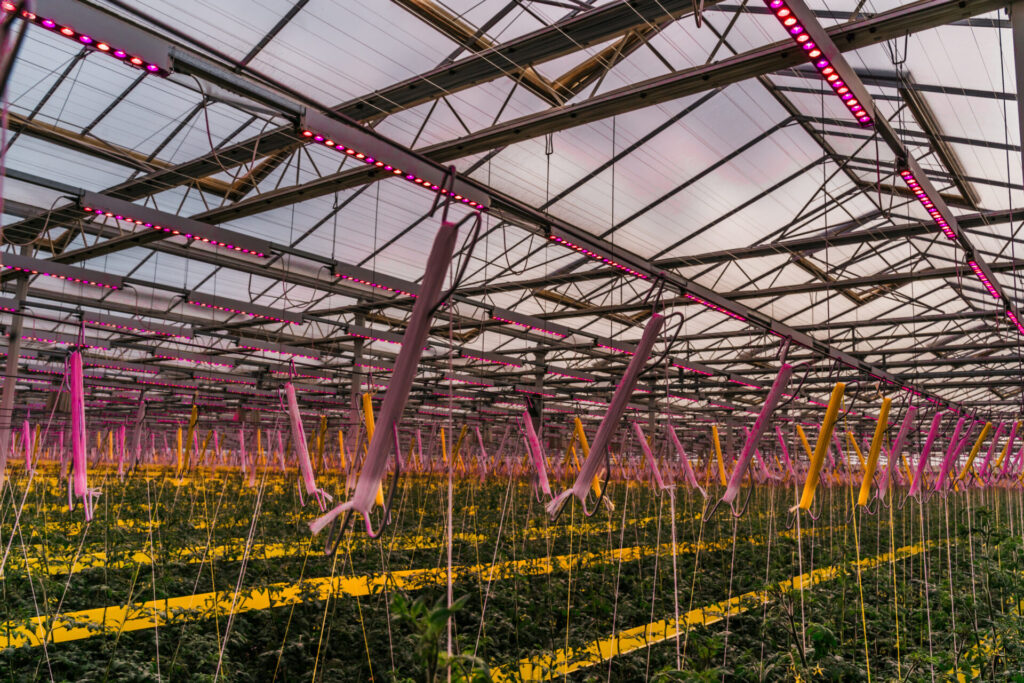Our farm




Quality, innovation and sustainability: the company aims these three goals, bringing on your tables, 365 days a year, healthy products with organoleptic proprieties.
• The wholesomeness of the products, provided by the pollination made by selected insects, enemies of parasites, and by the cleanliness of a closed and covered habitat that leaves out the polluting substances. Tomatoes and cucumber, uniform and with stable and lasting organoleptic proprieties, are also nickel free;
• The production that provides products for the whole year, thanks to its independence from soil depletion and weather conditions.
The technique is frequently controlled in greenhouses heated with energy recovery and drained by water reuse; in addition, as in the case of our Venlo in glass semi-closed, they are lit up with low-power LED lights during the winter period.
Hydroponic cultivation has a lot of advantages that benefit both our health and the environment we live in.
• A 70% reduction of the used and exploited land, with the same number of vegetables produced (i. e 1 hectare of hydroponic greenhouse “covers” 10 hectares of traditional cultivation of tomatoes and cucumber intended for sale). In this way, the environmental impact produced is lower and, therefore, more sustainable;
• A 70% reduction of the water that plants and seeds need for their growth, since its recovery and re-use are constantly working, even with rainwater. In fact, the excess water, that is not held by the plants, is filtered and pumped back in the facility, avoiding wastes;

Who we are
Lapietra’s farm cultivates tomatoes and cucumber using an innovative system that ensures high quality and production standards, in respect of accurate environmental politics. The hydroponic cultivation has been used by the two brothers Vincenzo e Pasquale since the early ’90s: with this technique our vegetables grow without soil, in protected and hyper technological greenhouses that provide the conservation of natural resources and the distribution of farm-to-table and nickel-free products, with respect to Global GAP protocol about good agricultural practice.
Quality, innovation and sustainability: the company aims these three goals, bringing on your tables, 365 days a year, healthy products with organoleptic proprieties.

What hydroponic cultivation is
Hydroponic cultivation is a “soilless” technique that replaces the land with an inert substrate – in which the seeds are put – irrigated with water rich in all the nutrients and minerals that a healthy plant needs for its growth.
The technique is frequently controlled in greenhouses heated with energy recovery and drained by water reuse; in addition, as in the case of our Venlo in glass semi-closed, they are lit up with low-power LED lights during the winter period.
Hydroponic cultivation has a lot of advantages that benefit both our health and the environment we live in.

These advantages concern:
• A 70% reduction of the used and exploited land, with the same number of vegetables produced (i. e 1 hectare of hydroponic greenhouse “covers” 10 hectares of traditional cultivation of tomatoes and cucumber intended for sale). In this way, the environmental impact produced is lower and, therefore, more sustainable;
• A 70% reduction of the water that plants and seeds need for their growth, since its recovery and re-use are constantly working, even with rainwater. In fact, the excess water, that is not held by the plants, is filtered and pumped back in the facility, avoiding wastes;

• The continuous tracking of the climate in the greenhouse: in fact, the exchange of air on the inside is non-stop and it allows to maintain the temperature, the levels of humidity and the levels of CO2 constant;
• The wholesomeness of the products, provided by the pollination made by selected insects, enemies of parasites, and by the cleanliness of a closed and covered habitat that leaves out the polluting substances. Tomatoes and cucumber, uniform and with stable and lasting organoleptic proprieties, are also nickel free;
• The production that provides products for the whole year, thanks to its independence from soil depletion and weather conditions.








